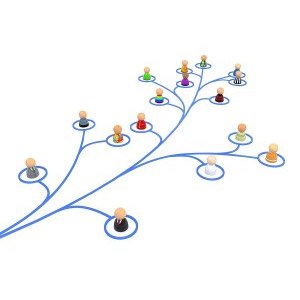The release of the Penguin update saw webmasters overhauling their link building strategies and the rise of a new breed of SEOs who are figuring out more inventive ways of building links; there has been a paradigm shift from the business of building links to earning or attracting links.
This has also led to people questioning the viability of the time tested, traditional link building techniques that we are so familiar with.
Do social bookmarking, article submissions, posting on forums, directory submissions, interlinking pages of your website, RSS directories etc. have any relevance in modern SEO? Should we be relearning what we know about SEO and go back to the drawing board? Will all the traditional means of building links become irrelevant in 2013?
The answer to these questions isn’t as simple as it seems to be – They cannot be answered by a simple Yes or No.
To understand whether link building will change in a big way this year, so much so that all the classical link building techniques will be thrown out of the window, let’s go back a bit and take a look at the fundamental reason behind Google’s Penguin update. Google launched the Penguin update in a bid to improve search quality; it wanted to identify and penalize those sites that were spamming its search results. It started frowning upon unnatural links.
The Penguin update was essentially a wakeup call for site owners who were enjoying good rankings on SERPs because of the quantity of links pointing to their site. It stated in no mean terms that only sites with natural links pointing towards them were going to be ranked higher in SERPs. As websites started getting penalized (and continue to be penalized), webmasters started scrambling to reevaluate their link building strategies. In doing so, they have started employing newer and more natural ways of building links, and slowly decreased or completely stopped their usage of traditional techniques.
But, does this mean, you shouldn’t use the traditional techniques and go a different route? Not by a long shot it isn’t. The post penguin SEO era is all about focusing on quality link building rather than getting as many links as you can. It’s not about making traditional link building techniques irrelevant or defunct.
Let’s take a close hard look at each of these techniques and see whether they stand up to Penguin’s stringent scrutiny.
The Directory Links Mystery
The problem SEOs encounter is that they keep coming across those articles talking about uncommon/unique/next generation link building techniques and think that’s the only way to go about building natural links. The first casualty in this sort of thinking is directory submissions. This age old technique of link building is seen with jaundiced eyes now!
Now here’s something that might surprise you. Google doesn’t want you to stop submitting your links to directories. All it wants you to do is not submit links to disreputable directories, the kind of directories that are un-moderated and where your link will be approved and go live, as soon as you submit it. Usually such directories link to sites that aren’t quality.
So, what you need to do in the interest of quality link building is to identify human edited niche directories to submit your link to. By submitting your link to these directories you are making sure that your website link is not clubbed with seedy or shady links that are a part a parcel of directories that are not human moderated.
Go ahead with directory submissions but be very careful about the directories that you are going to submit your link to. Make sure that they are relevant and a respected name in your niche.
Should you stop commenting on blogs?
No, you shouldn’t. Commenting is one of the more popular ways for building links, but webmasters will be making a huge mistake if they are using this technique for the sole purpose of building links. That’s called spamming. So, if that makes you want to give up on blog commenting, it’s your choice. But if you still want to use it, make sure that your comments are intelligent, insightful and create a very good impression on the blog owner.
By posting sensible comments, you are also improving your own authority in your niche. Blog comments are turning into a great outreach strategy, where comments can be used to start an interaction with bloggers. This means that a traditional link building strategy, if used correctly, can also give a much needed ancillary benefit as well.
Goodbye Social Boomarking?
Many of us just can’t do without social boomarking, and the fact that we can make bulk submissions to social bookmarking networks, makes this a much loved strategy. Does the Penguin update mean we need to give up on our most trusted and well-loved friend? No it doesn’t. All it means is that we need to be careful about which social bookmarking sites we are submitting our links to. Make sure that you are only using social bookmarking websites that are reputed, popular and relevant to your industry.
Build an authoritative profile on the networks and don’t just submit your links, but other useful links as well. Make sure that you have some great content up your sleeve, before you jump into social bookmarking.
Old Wine in a New Bottle
Here I have just mentioned three of the commonly used link building techniques, which many SEOs thought were on the way out in 2013. Well, the good news is that they aren’t and the bad news is that they need to be re-imagined in a post Penguin and Panda context and put to good use in your SEO efforts. Contemporary SEO strategies are more about fine tuning what you were doing and adding some new elements to it. It’s not about ignoring the old for the new but mixing both together to have a cracker of an SEO strategy that adheres to the Google quality link building guidelines.
